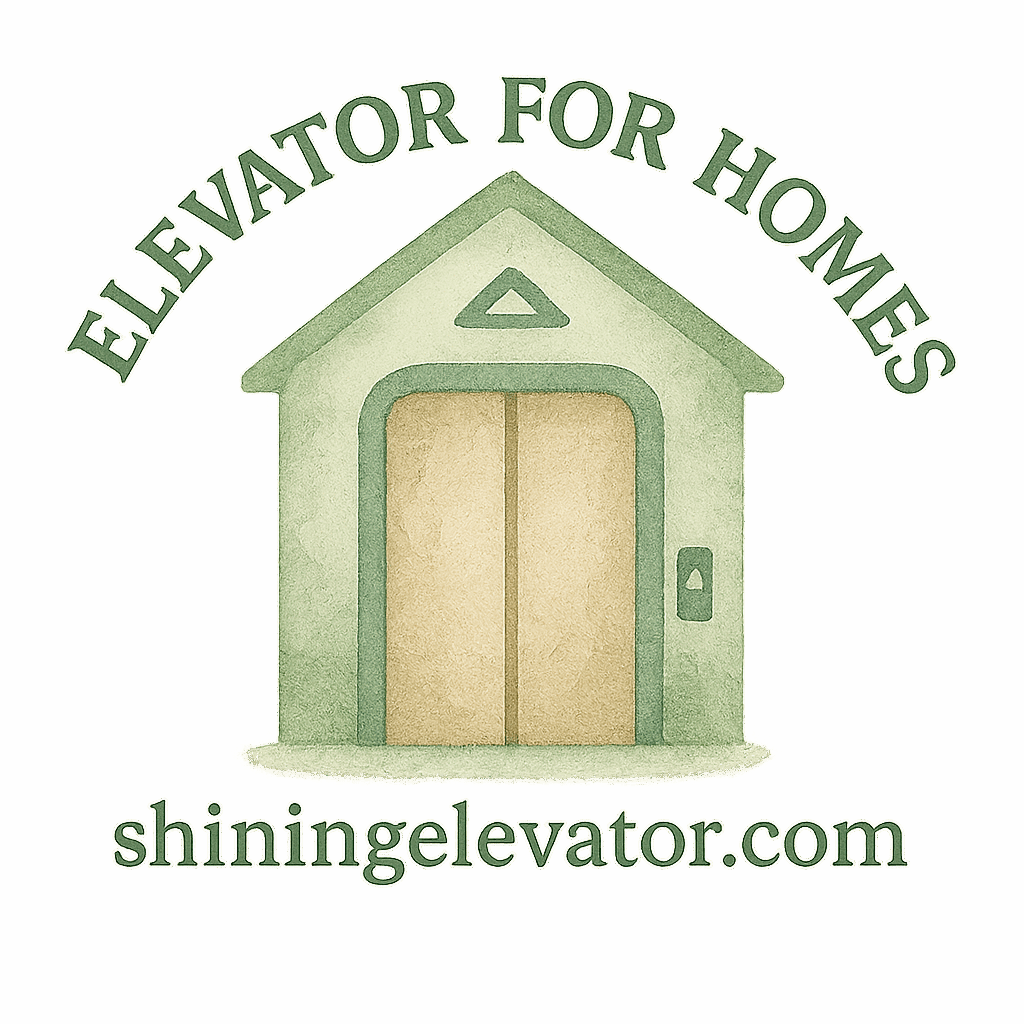Adding a home elevator can feel like upgrading your lifestyle to first class—but what’s the real cost? If you’re considering one for comfort, convenience, or accessibility, it’s smart to know what you’re getting into financially. Here’s a full breakdown of the 9 costs involved in installing a home elevator, so you can budget wisely and avoid any surprises.
Introduction: Why Home Elevators Are Becoming More Popular
Let’s face it—multi-level homes are beautiful, but stairs can become a burden, especially for seniors or anyone with mobility issues. That’s where home elevators come in. They’re not just luxury items anymore—they’re practical, space-saving, and even essential for aging in place. But like any home improvement, elevators come with their own price tag.
Before we dive in, you can explore more on budgeting and planning for a home elevator on Shining Elevator’s official site.
1. Elevator Equipment Cost
Types of Elevators and Price Range
The first major cost? The elevator itself. There are various types of residential elevators—hydraulic, traction, pneumatic vacuum, shaftless, and more.
- Hydraulic elevators: $20,000–$30,000
- Traction elevators: $25,000–$45,000
- Vacuum elevators: $35,000–$50,000
Each comes with its pros and cons, and pricing varies based on capacity, number of stops, and energy efficiency.
Explore more elevator styles here.
Customization and Design Preferences
Want a stainless steel cab with LED lighting? Or maybe a wood-finished interior that matches your foyer? Personal touches add beauty—and cost. The more customization you desire, the more the bill rises.
Learn about elevator design customization options that can influence your total cost.
2. Planning and Budgeting Expenses
Home Assessment and Feasibility Study
Before you even choose a model, a feasibility study helps determine if your home can support an elevator and what kind. Expect $500–$2,000 depending on the provider.
Pre-installation Budget Planning
A thorough budgeting and planning session will ensure no hidden costs creep up later. Planning services may come bundled or charged separately.
3. Design and Customization Charges
Interior Design, Finishes, and Luxury Touches
Want it to match your home’s aesthetic? Think of mirrors, flooring, lighting, and control panels. Upscale finishes can add $5,000–$15,000 to the project. These luxury looks can significantly enhance your home’s value and appeal.
Compact and Space-Saving Options
Need something discreet? Compact elevators are perfect for smaller homes—but squeezing them in can add design complexity and cost.

4. Structural Modification Costs
Shaft Construction and Structural Adjustments
Older homes often need structural modifications to support an elevator shaft. Expect $10,000–$25,000 depending on how much retrofitting is required.
Electrical and Plumbing Adjustments
Your elevator needs a power source. Upgrading your panel or rerouting wiring? That’s another $2,000–$5,000. Don’t forget plumbing if it’s near water lines.
Explore the full installation process and what it may involve structurally.
5. Installation Charges
Installation Labor and Timeframe
Installation labor can range from $10,000 to $20,000 depending on the elevator type and your location. The timeline? Anywhere from a week to several months.
Home Preparation Requirements
Expect to prepare the site—clearing space, reinforcing walls, or accommodating machine rooms. Learn more about home preparation needs here.
For full service packages, visit Shining Elevator’s installation & maintenance page.
6. Permits and Compliance Fees
Local Building Code Adherence
Permit costs vary by city but average between $500–$3,000. This includes ensuring your elevator complies with local building and zoning laws.
Safety and Accessibility Requirements
Modern elevators must meet safety and accessibility standards like handrails, emergency phones, and more. Some accessibility features are legally required—especially if you’re planning for aging in place.
7. Maintenance and Long-Term Service Costs
Regular Maintenance Plans
You’ll need routine servicing. Maintenance plans cost between $300 and $800 per year. Check out more on maintenance budgeting.
Emergency Repairs and Troubleshooting
What happens if your elevator malfunctions? Emergency calls and repair visits can cost $500–$1,500 each time. That’s why a solid service contract is a must-have.
8. Insurance and Warranty Fees
Elevator-Specific Coverage
Adding a home elevator could increase your homeowner’s insurance premiums. Expect an extra $100–$300 annually.
Manufacturer Warranty Extensions
Some warranties are free for the first year, but extended warranties? That’s $1,000–$3,000 extra.
9. Hidden or Unexpected Costs
Utility Usage and Energy Bills
Electric elevators don’t consume massive power, but over time, they can increase your energy bill by $150–$300 annually.
Post-Installation Inspections and Upgrades
Some cities require post-installation inspections, and surprise upgrades might pop up—like soundproofing or backup power.
Is It Worth the Investment?
Absolutely—especially if you’re thinking about long-term convenience or aging at home. Home elevators increase property value, boost home accessibility, and are great for multigenerational living.
Not to mention, they’re an attractive feature to elevator providers and future buyers!
How to Save on Home Elevator Installation
Smart Budgeting Strategies
- Go with a shaftless elevator to reduce structural changes.
- Opt for essential features now, and upgrade later.
- Reuse available space like closets for the shaft.
Choosing the Right Elevator Provider
Work with experienced elevator companies like Shining Elevator who offer bundled packages, warranty support, and affordable elevator options.
Conclusion
Home elevators are more than a luxury—they’re an investment in comfort, safety, and the future. While costs can vary widely based on your home and your preferences, understanding each expense helps you make informed decisions and plan ahead. Whether you’re planning for aging in place, building your dream home, or simply looking to upgrade your lifestyle, knowing the real costs of installing a home elevator gives you the power to do it right.
FAQs
1. What is the average cost to install a residential elevator?
The average cost ranges between $25,000–$60,000 depending on the type and customization level.
2. Can I install a home elevator in an existing house?
Yes, but structural modifications may increase the cost. Check out installation info for more.
3. What type of elevator is best for a small home?
Shaftless or compact elevators are ideal for limited spaces.
4. How often do home elevators need maintenance?
Typically every 6–12 months. Explore more about maintenance plans.
5. Are home elevators safe for elderly users?
Absolutely! They improve mobility and reduce fall risks. See our guide on elevators for the elderly.
6. Do I need a permit to install a home elevator?
Yes, you’ll need local permits. Learn more about safety & compliance.
7. Are there any energy-efficient home elevator options?
Yes! Many modern elevator types are designed with energy-saving motors.


